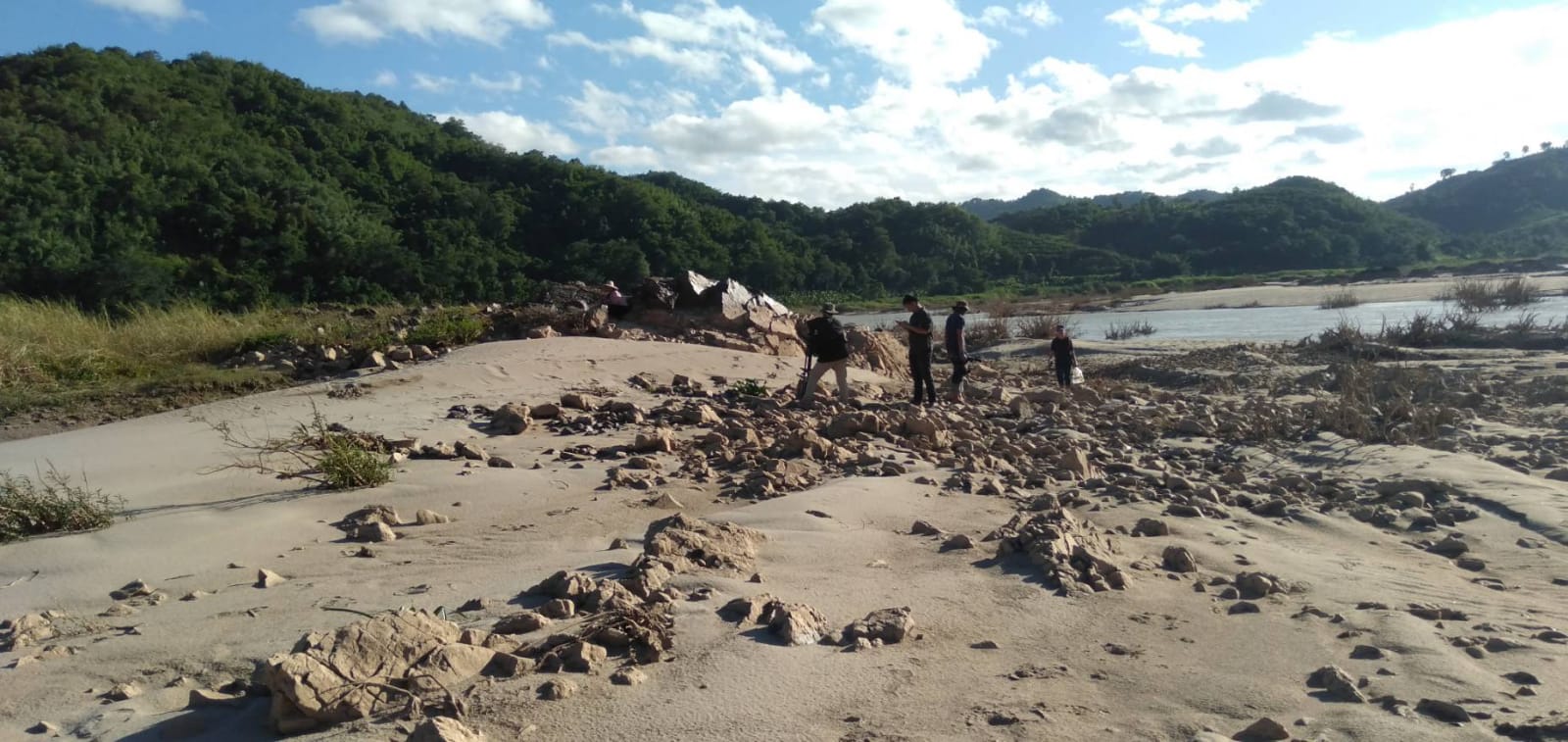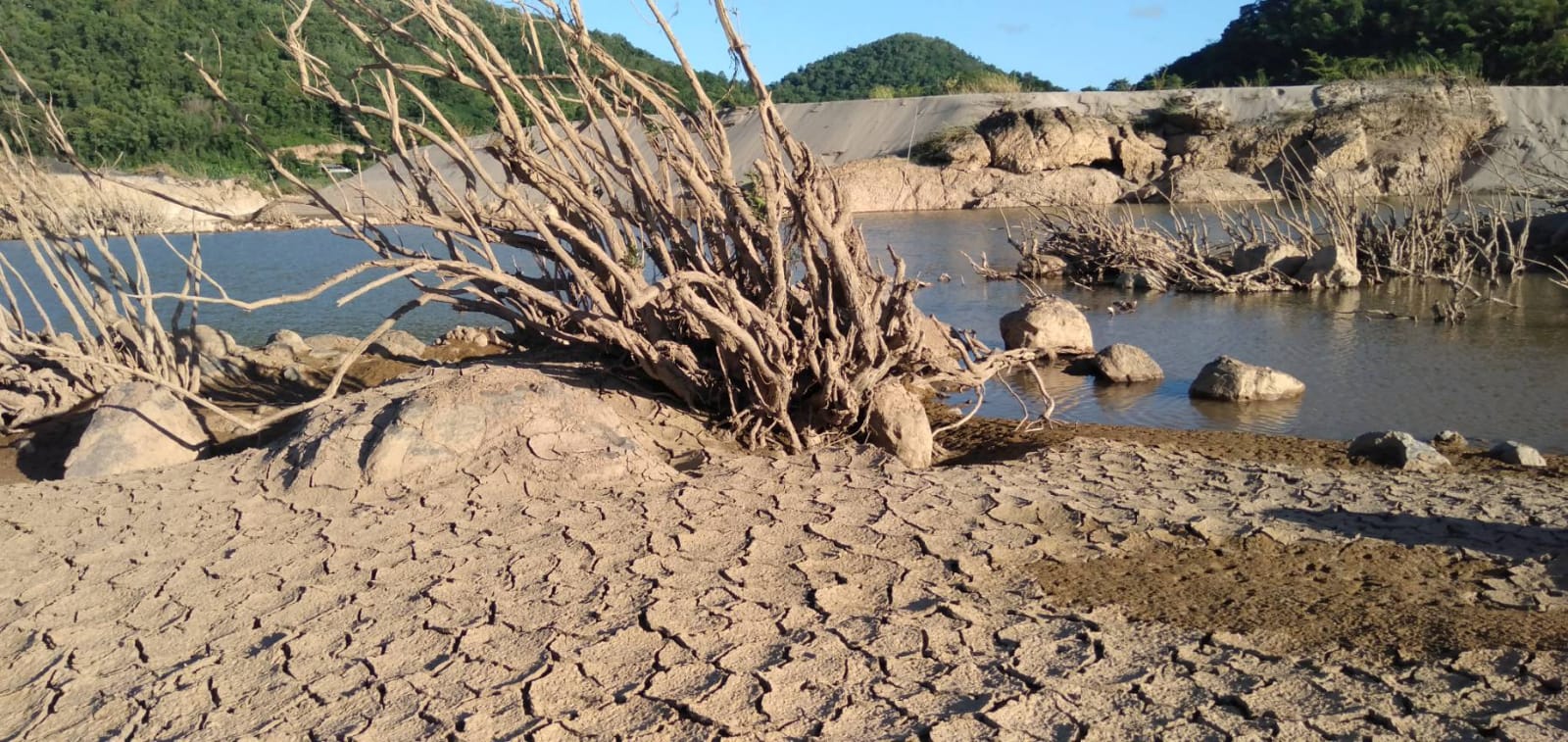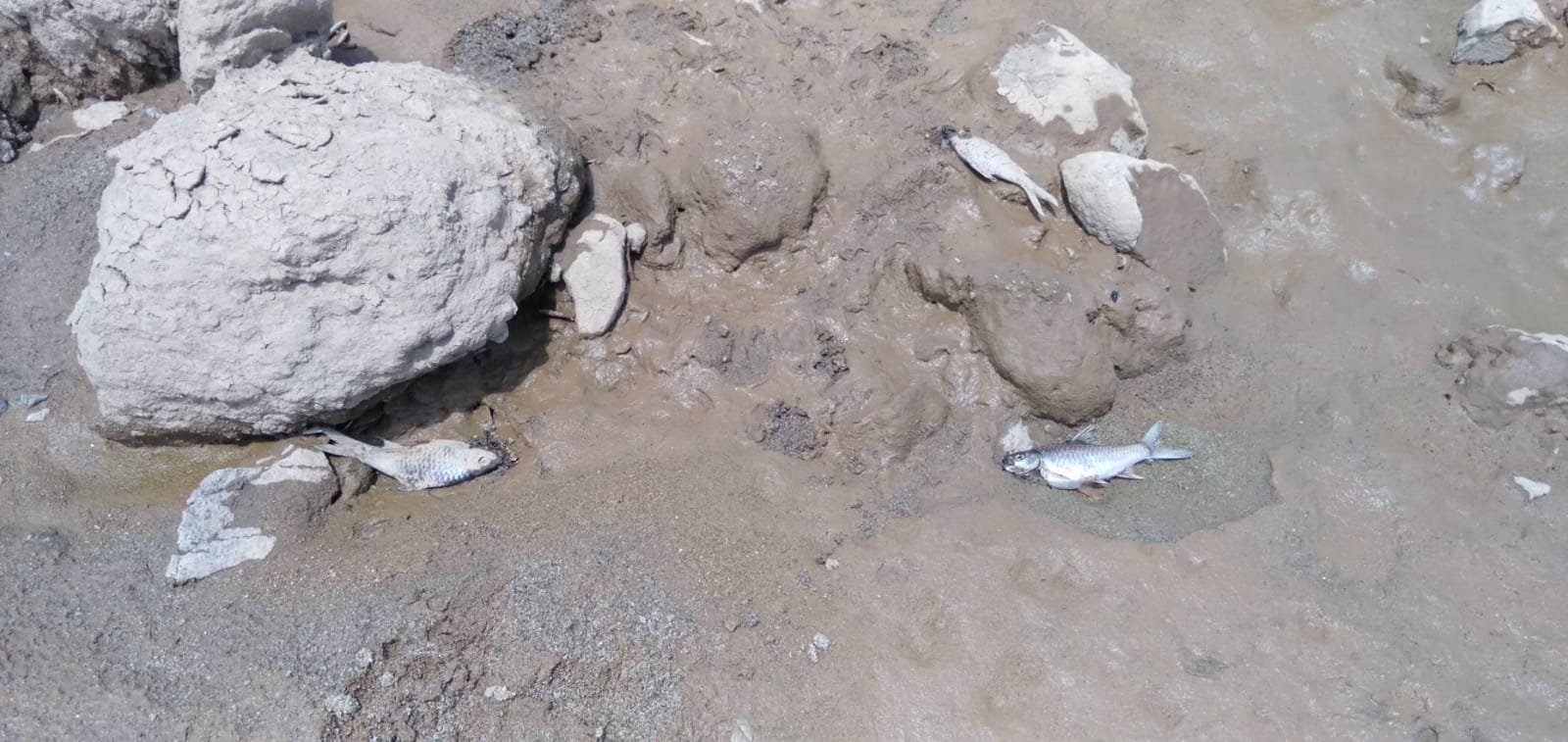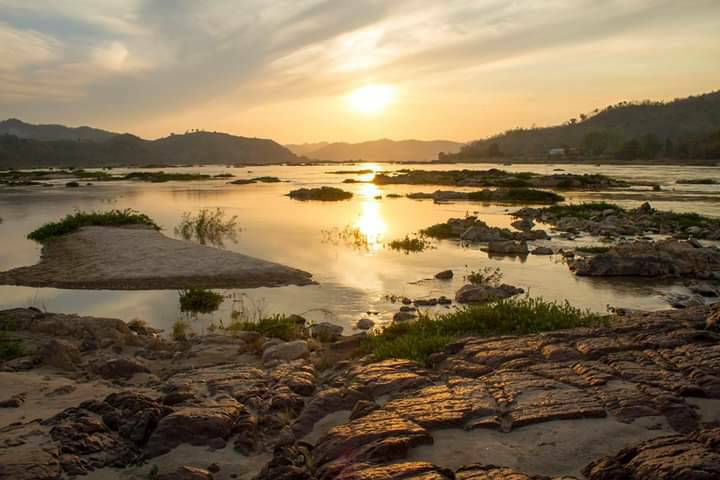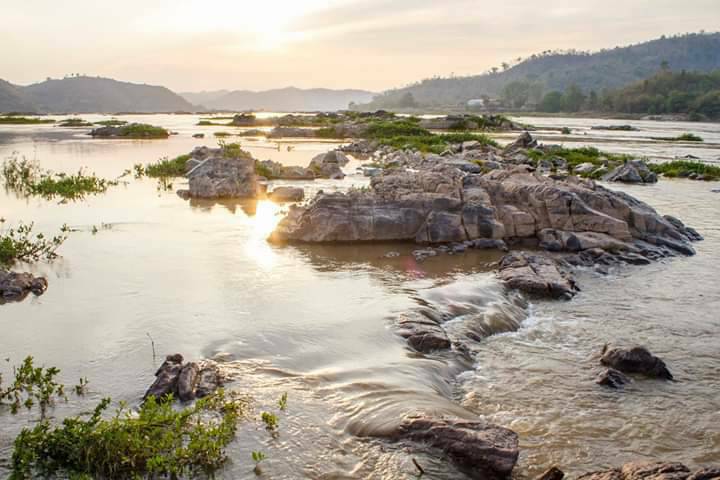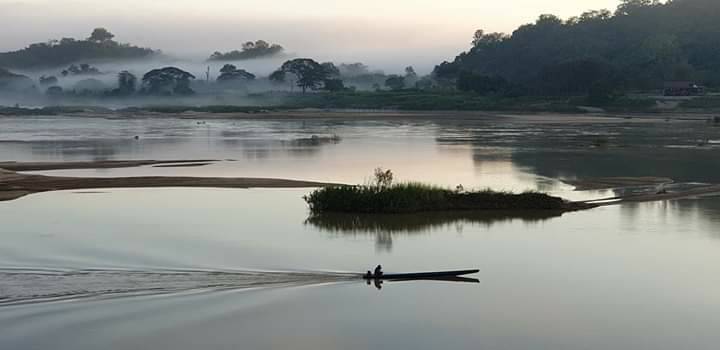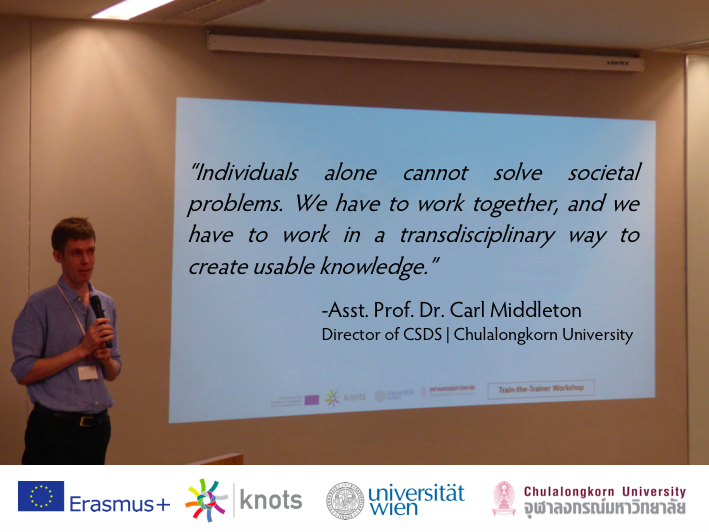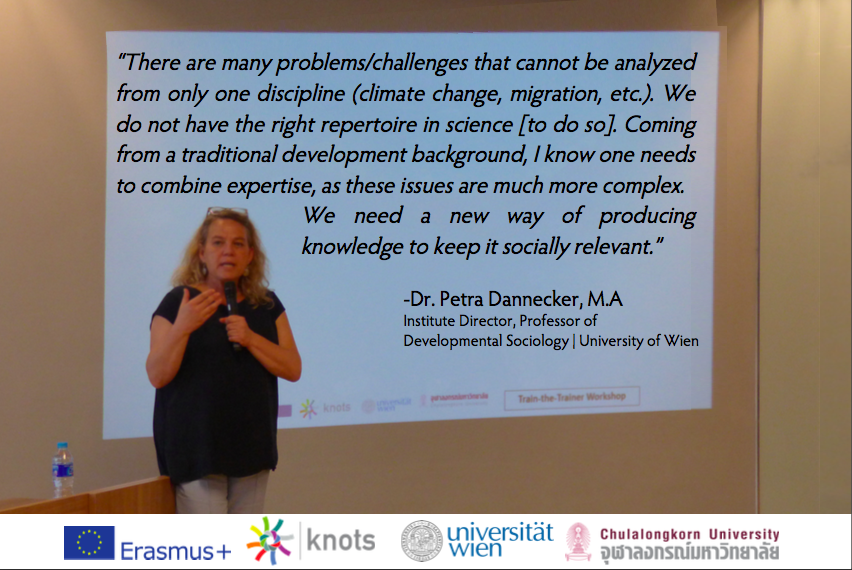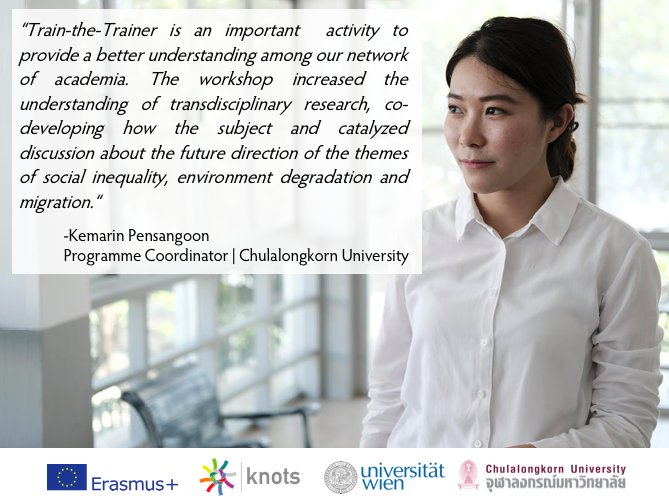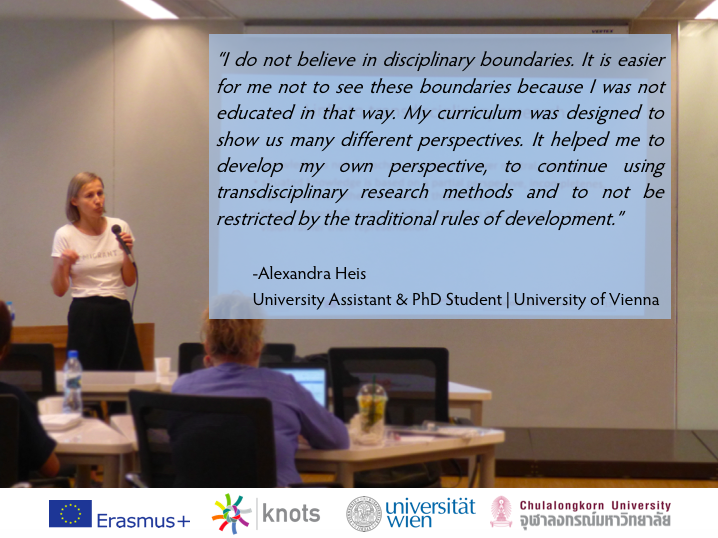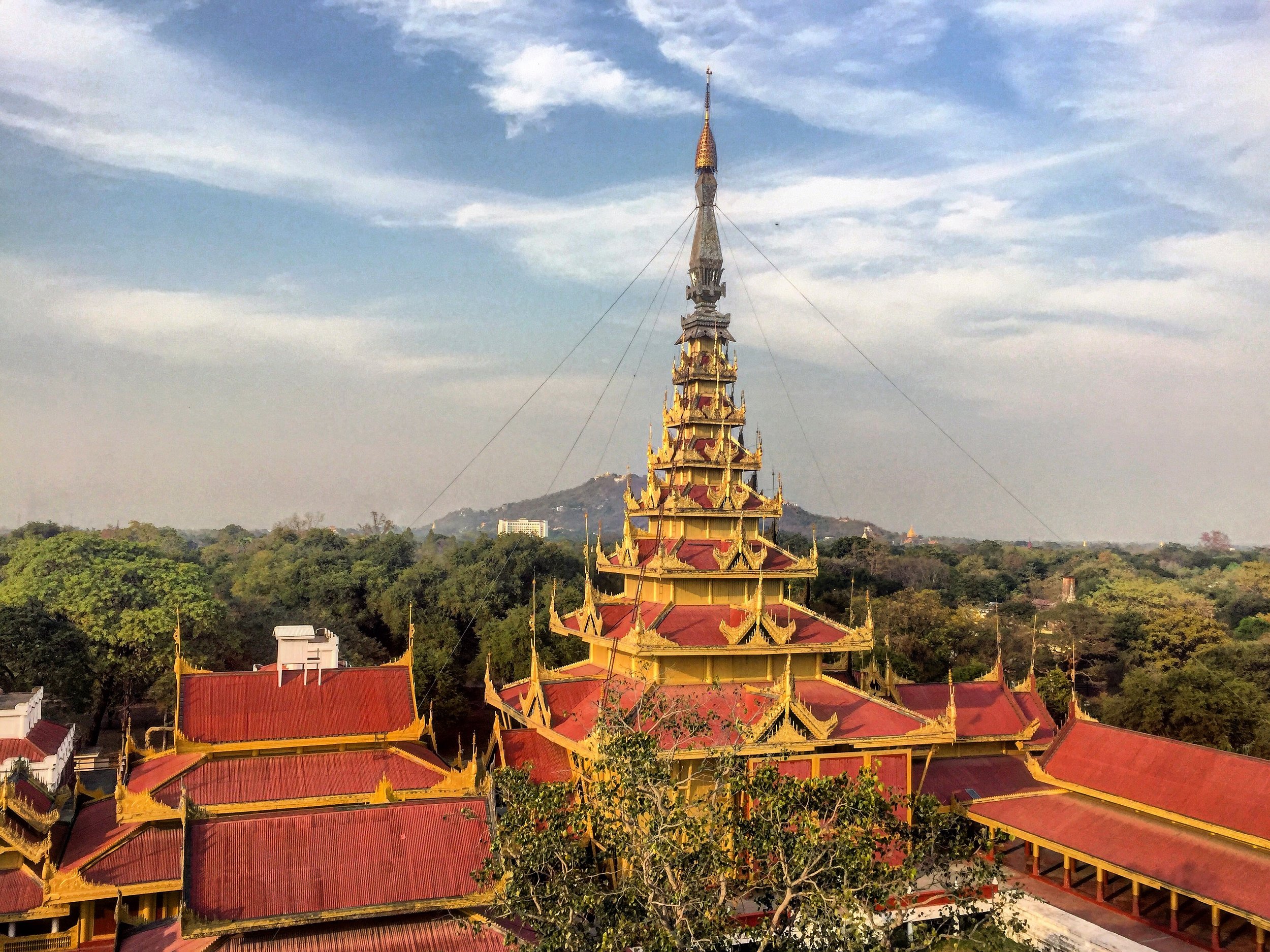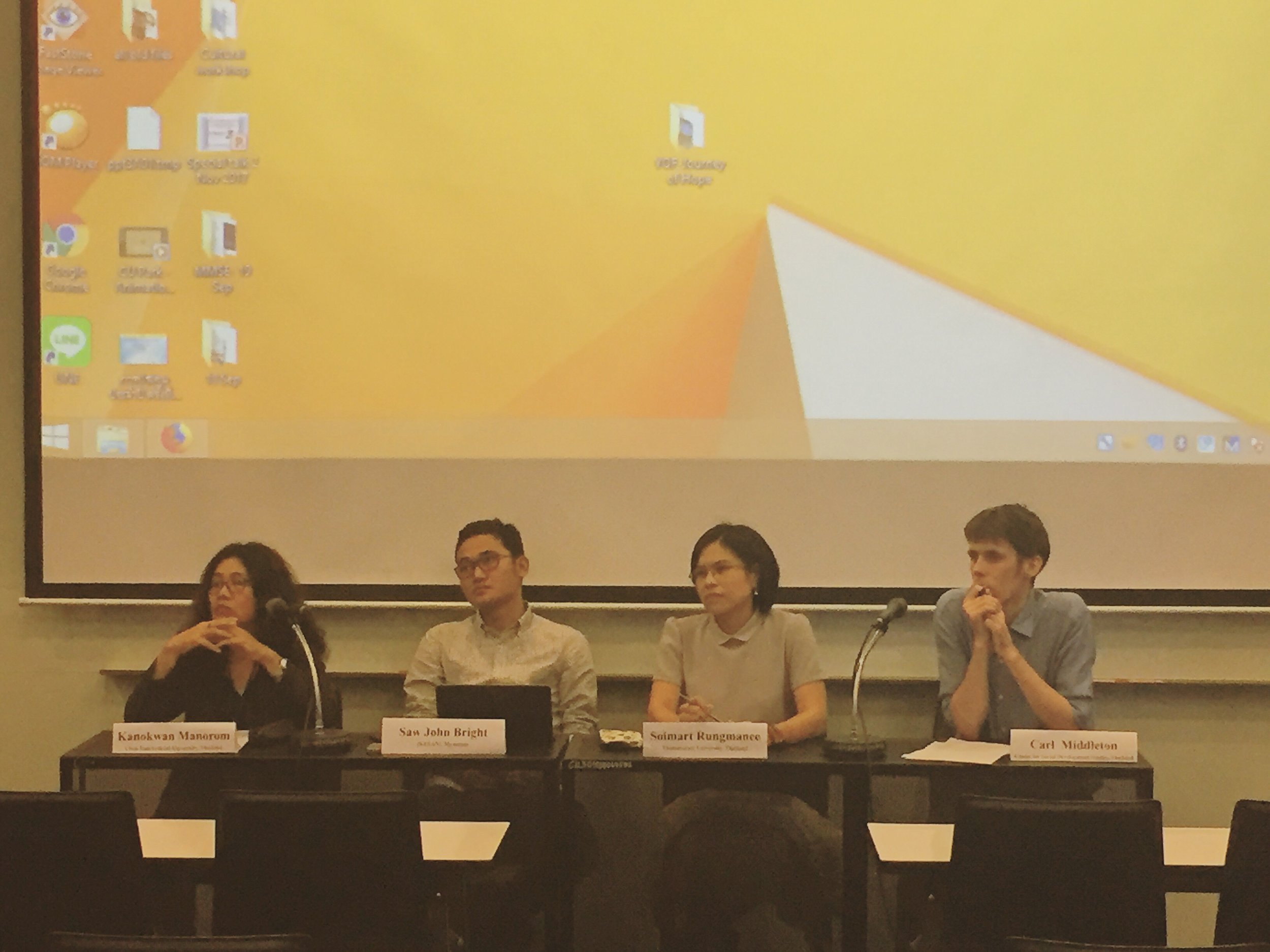The Dean of the Faculty of Political Science, Assoc. Prof. Dr. Ake Tangsupvattana, opened the event with welcoming remarks highlighting how the countries of mainland Southeast Asia are facing a period of rapid change with growing flows of investment from China into a range of projects. He observed that whilst economic growth continues, there remain unresolved challenges on environmental sustainability, social equity, and public participation.
The first session, moderated Dr. Carl Middleton from CSDS, discussed the geopolitical implications of the Belt and Road Initiative for Asia. Dr. Thitinan Pongsudhirak from the Institute of Security and International Studies (ISIS) of Chulalongkorn University raised the question on how the Belt and Road Initiative posed challenges to the existing legal international regimes, while Mr. Li Hong who is the Permanent Representative of China to United Nations Economic and Social Commission for Asia and Pacific (UNESCAP) discussed the ideas behind the Belt and Road Initiatives and how it is an open initiative and it is expected to be a joint effort between the countries instead of just centering on China. Legal and Political Analyst Benjamin Zawacki explained the impact of Belt and Road Initiatives for the relations between Thailand and the US, including US proposals for a Free and Open Indo-Pacific strategy, as well as the crucial role Thailand could be playing once it takes up the ASEAN chair in 2019. Wrapping up the session was Amantha Perera, a journalist from Sri Lanka, who shared the experience of Sri Lanka dealing with investments from China which has led in some cases to a so-called “Debt Trap” when loans failed to perform. He also reminded how environmental impact from investments are rarely being properly assessed and not publicly disclosed.
The second session, moderated by Dr. Ukrist Pathmanand from the Mekong Research Center of Chulalongkorn University, discussed the progress and challenges on transboundary water cooperation. Dr. Anoulak Kittikhoun, Chief Strategy and Partnership Officer of the Mekong River Commission (MRC) Secretariat explained about the MRC and how it was increasingly engaging with China, including through the LMC. Dr. John Dore, Lead Water Specialist from Australia's Department of Foreign Affairs and Trade highlighted how around transboundary water governance on the Mekong River involved not only governments, but multiple actors and coalitions through multi-track diplomacy that influences development directions and decision-making. Meanwhile Supalak Ganjanakhundee from The Nation newspaper reflected on the Xe Pian - Xe Nam Noi disaster and how he expected the existing initiatives in the Mekong Region, including the MRC, to play a bigger part in responding to the disaster.
The third session, moderated by Kamol Sukin from chinadialogue, discussed emerging cooperation issues with the rise of the LMC. Courtney Weatherby from the Stimson Centre raised the issue of energy market shifts. In particular, she addressed how the price of non-hydropower renewables were dropping quickly, there are now innovations in energy transmission, and how China’s current excess hydropower could drastically alter investment needs in the Lower-Mekong region. Dr. Chayanis Krittasudthacheewa from Stockholm Environment Institute (SEI) explained the necessity of sustainable scientific cooperation across the region to address knowledge gaps. She also highlighted how better approaches to knowledge production and need to influence policy, in particular the “co-production of knowledge” between researchers and practioners. Dr. Apichai Sunchindah, an Independent Development Specialist, highlighted the lack of sufficient cooperation between different existing regional frameworks and how ASEAN could help in backing initiatives in the Mekong Region to balance the influence of China.
In the last session, moderated by Sim Kok Eng Amy from Earth Journalism Network, journalists from China, Myanmar, and Vietnam shared the trends, challenges, and successes for Southeast Asia's media on reporting the Mekong and China's role. Wang Yan from News China highlighted journalists' role in reporting regional issues such as helping to facilitate communications between upstream and downstream countries and communities. Zayar Hlaing from Mawkun Magazine in Myanmar shared the story of the Sino-Myanmar pipeline project and its impact on the livelihood of people living along the pipeline. Bui Tien Dung from Vietnam shared about the importance of networking and capacity building for journalists working on environmental and social issues in the Mekong Region to improve the quality of the reporting. This session also highlighted the importance of cooperation between media and research institutes to help inform public debates.
For the closing remarks, Dr. Sam Geall from chinadialogue highlighted the importance of improved communication between China and the Lower Mekong countries and the role that journalists could play. Professor Surichai Wun'gaeo from the Center for Peace and Conflict Studies of Chulalongkorn University ended the forum with a reminder that any regional inter-governmental cooperation needs to be understood from the perspective of the impact on people’s lives, and emphasized the importance of always putting the well-being of people as the priority.
The shared presentations from this discussion can be accessed here. Some of the sessions were broadcast on Facebook Live and can also be viewed on the above link.
*Report written by Anisa Widyasari, Communications Coordinator at CSDS
